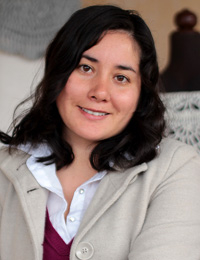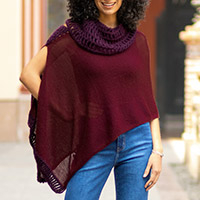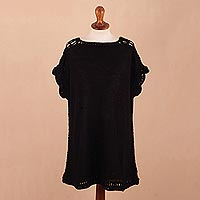- Home
- >
- Runakay Association
Runakay Association
"Art classes are important for teaching techniques, but what is of greater importance is the way that each piece is made. We are weaving together experiences, stories, and landscapes."
Runakay Association is borne from the dreams and hopes of Cecilia Cuadros and Virginia Barreda with a mission to empower... artists, artisans and admirers of Peruvian arts. It was founded in 2011 in Arequipa, where pre-Hispanic cultures meet Spanish influence, and the merger can be admired in the architecture and paintings, both cultures fusing into what is known as Andean baroque.
Runakay comes from the Quechua runa meaning human being, and runakay implies human nature, pride in being part of a community which in turn strengthens a personal identity.
Mother of three Cecilia is an industrial engineer with a life-long dream of working and supporting artisans from the different regions in Peru. Virginia is a designer and architect working with several communities. She interprets Arequipa culture and expresses it through textile arts.
"I grew up in my grandparents' house surrounded by nature and the Arequipa landscape," recalls Virginia. "Grandfather was a philosopher and an artist who painted and sculpted, so his presence and the environment surrounding his house created a world for me like none other!
"My mother, Yolanda, taught me how to knit when I was a little girl. Mom always encouraged me to develop my creativity by giving all sorts of materials like swaths of cloth, yarn, paper and other, which in turn I would transform into little presents and ornaments for the family. From my father, Vicente, an industrial engineer, I learned the importance of respect, responsibility and discipline. As a free spirit, my father's teachings helped me become a person and an artist of integrity.
"I've always wanted to study design, so I took a course in interior design and when I finished I studied architecture in Arequipa. Then I went to Lima to study fashion design.
"From a very young age, Cecilia has been working with different Andean communities along artisans. From our experiences working in Peru's remotest areas we became aware of the reality of their living conditions, and that's how we decided to work together and form an association.
"The members of the association have an equally strong appreciation for their culture, of which we all feel very proud. We love our Arequipa roots and culture, weaves, sculptures, architecture, ceramics and jewelry.
"The artisans of Arequipa are proud keepers of their artistic traditions and procedures, which they learned from their parents and grandparents all the way back to their ancestors who first developed the techniques.
"Through the association we train women artisans in their own communities in design, weaving and knitting techniques. The aim is to rescue their own traditions, and from there develop original collections. We also provide training in budgeting and administration so they can stand up to a very competitive market and start procuring a better income for themselves.
"With each trip to a new community we experience different things, especially when we go to far away communities that are difficult to reach, where services are scarce services and where climate conditions are harsh, just like their living conditions.
"And yet, getting to know a new community fills us with hope. We learn so much from them, like their customs and culture – it's such an enriching exchange! The art of weaving and the benefits of fair trade have taken our association to get to know so many places and so many marvelous people. The association has given us the opportunity to go to new places, meet new people, hear new stories, and find new sources of inspiration.
"At Runakay Association we believe that being able to design, weave and knit, is a gift. It is a language that has allowed us to communicate with people of different origins, cultures, languages and beliefs, all coming together through a single and integrating thread.
"Seeing the people that surround us, the smiles of the women when they have finished a piece, people's reactions when they see what they have done and the opportunity to preserve ancestral artistic traditions – all of these motivates us to continue with the added value that we are contributing to the economic conditions of Andean communities.
"We believe in culture as an active factor that leads to social development and inclusion, and this belief inspires us to identify, design and promote projects that truly lead to the development of communities in the countryside.
Art classes are important for teaching techniques, but what is of greater importance is the way that each piece is made. We are weaving together experiences, stories, and landscapes.
"One of the challenges we might face as an association is to transmit, with every negotiation, our deep respect for culture, people and their quality of life, as well as our social and ecological responsibility, as we search for an institutional development that supports regional development.
"And so, Novica customer, I'd like to reassure you that the piece you hold in your hands is woven with the pride and hope, dreams and emotions of the artisan who made it, feeling at one with nature. That means they are filled with life, a life that identifies with nature, people and their communities and their wellbeing."
Mother of three Cecilia is an industrial engineer with a life-long dream of working and supporting artisans from the different regions in Peru. Virginia is a designer and architect working with several communities. She interprets Arequipa culture and expresses it through textile arts.
"I grew up in my grandparents' house surrounded by nature and the Arequipa landscape," recalls Virginia. "Grandfather was a philosopher and an artist who painted and sculpted, so his presence and the environment surrounding his house created a world for me like none other!
"My mother, Yolanda, taught me how to knit when I was a little girl. Mom always encouraged me to develop my creativity by giving all sorts of materials like swaths of cloth, yarn, paper and other, which in turn I would transform into little presents and ornaments for the family. From my father, Vicente, an industrial engineer, I learned the importance of respect, responsibility and discipline. As a free spirit, my father's teachings helped me become a person and an artist of integrity.
"I've always wanted to study design, so I took a course in interior design and when I finished I studied architecture in Arequipa. Then I went to Lima to study fashion design.
"From a very young age, Cecilia has been working with different Andean communities along artisans. From our experiences working in Peru's remotest areas we became aware of the reality of their living conditions, and that's how we decided to work together and form an association.
"The members of the association have an equally strong appreciation for their culture, of which we all feel very proud. We love our Arequipa roots and culture, weaves, sculptures, architecture, ceramics and jewelry.
"The artisans of Arequipa are proud keepers of their artistic traditions and procedures, which they learned from their parents and grandparents all the way back to their ancestors who first developed the techniques.
"Through the association we train women artisans in their own communities in design, weaving and knitting techniques. The aim is to rescue their own traditions, and from there develop original collections. We also provide training in budgeting and administration so they can stand up to a very competitive market and start procuring a better income for themselves.
"With each trip to a new community we experience different things, especially when we go to far away communities that are difficult to reach, where services are scarce services and where climate conditions are harsh, just like their living conditions.
"And yet, getting to know a new community fills us with hope. We learn so much from them, like their customs and culture – it's such an enriching exchange! The art of weaving and the benefits of fair trade have taken our association to get to know so many places and so many marvelous people. The association has given us the opportunity to go to new places, meet new people, hear new stories, and find new sources of inspiration.
"At Runakay Association we believe that being able to design, weave and knit, is a gift. It is a language that has allowed us to communicate with people of different origins, cultures, languages and beliefs, all coming together through a single and integrating thread.
"Seeing the people that surround us, the smiles of the women when they have finished a piece, people's reactions when they see what they have done and the opportunity to preserve ancestral artistic traditions – all of these motivates us to continue with the added value that we are contributing to the economic conditions of Andean communities.
"We believe in culture as an active factor that leads to social development and inclusion, and this belief inspires us to identify, design and promote projects that truly lead to the development of communities in the countryside.
Art classes are important for teaching techniques, but what is of greater importance is the way that each piece is made. We are weaving together experiences, stories, and landscapes.
"One of the challenges we might face as an association is to transmit, with every negotiation, our deep respect for culture, people and their quality of life, as well as our social and ecological responsibility, as we search for an institutional development that supports regional development.
"And so, Novica customer, I'd like to reassure you that the piece you hold in your hands is woven with the pride and hope, dreams and emotions of the artisan who made it, feeling at one with nature. That means they are filled with life, a life that identifies with nature, people and their communities and their wellbeing."


